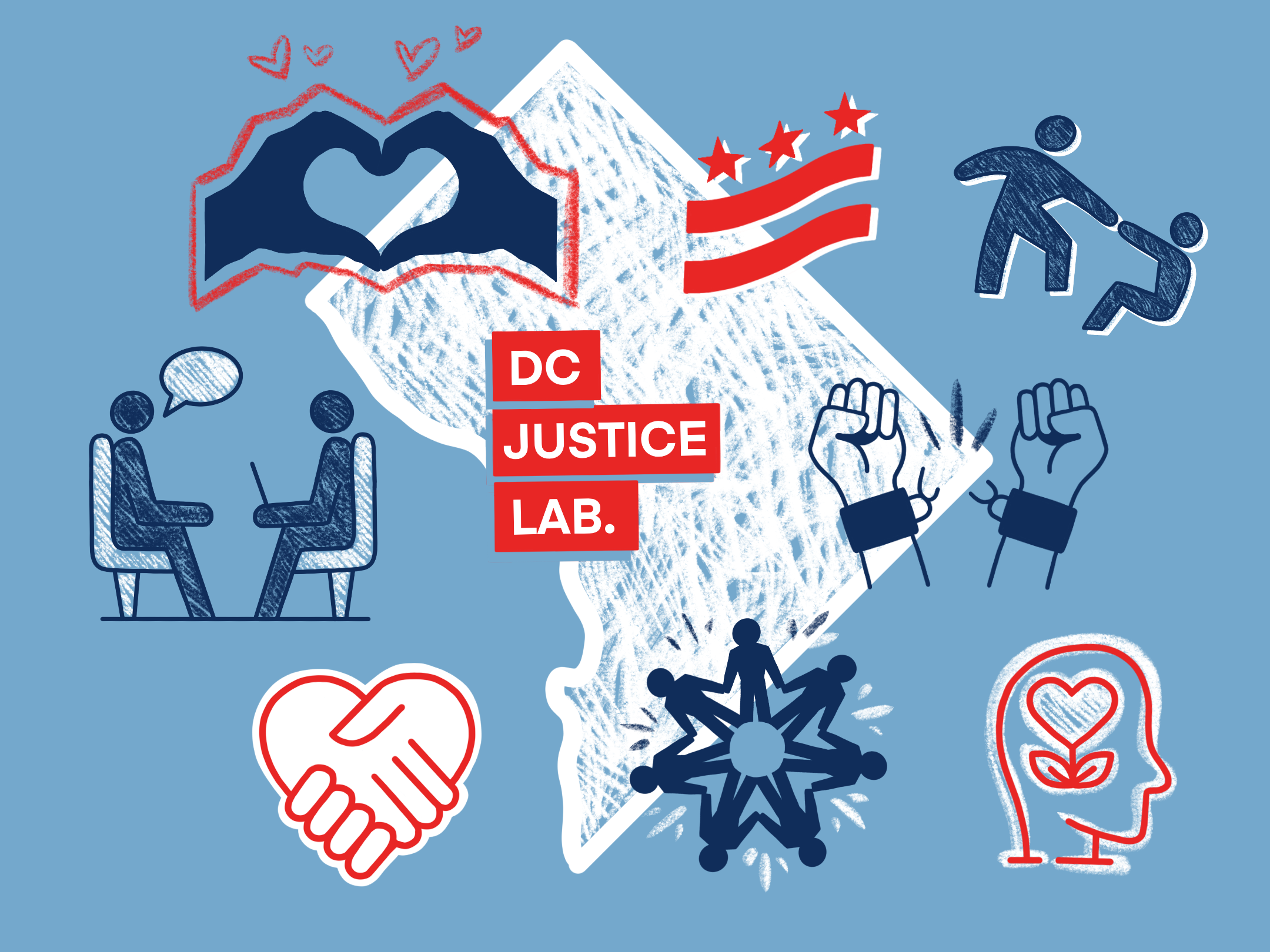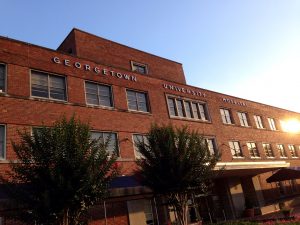Amid a spike in violent crime in D.C., Mayor Muriel Bowser released her new public safety legislation, called the Addressing Crime Trends (ACT) Now Act, on Oct. 23. This editorial board is skeptical about her recent slate of policy proposals, which criminal justice activists have described as tough on people but soft on crime. We instead advocate for a more coordinated, better-funded community care approach—an approach grounded in equity and compassion and backed by data and research—that targets crime and violence at its root.
Among other changes, the ACT Now Act plans to reduce crime by curtailing organized retail theft, creating drug-free zones to tamp down drug dealing and loitering, and making wearing a mask while committing a crime an additional offense.
More insidiously, it also rolls back on reforms to police accountability established after George Floyd’s murder, notably lessening restrictions on chokeholds, allowing officers to engage in vehicular pursuits, and keeping confidential the personal information of officers accused of wrongdoing. Far from bolstering public safety, these changes would protect police officers at the expense of transparency and accountability, thus only aggravating broken systems of policing.
Bowser cites that violent crime has risen by roughly 40 percent in 2023: D.C. surpassed 200 homicides in September, the earliest point since 1997. It must be noted, however, that the rise in crime does not impact all equally—the vast majority of violent crime happens in Wards 7 and 8. While it is difficult to pinpoint a specific cause of this disparity, we would be remiss not to acknowledge the distrust of police officers stemming from years of harassment and brutality, the increased police presence in these wards, and the impact of gentrification on these neighborhoods—which are majority-Black, low-income neighborhoods. Despite D.C. being one of the most policed major cities in the nation, communities, especially in Wards 7 and 8, report feeling unsafe—and Bowser’s proposed legislation would only worsen this.
Increasing protections for police officers as Bowser proposes directly places Black and Brown communities at risk. Bowser’s legislation represents a continuation of the failed war on drugs that incarcerated Black Americans at rates nearly four times higher than their white counterparts. More protections for police aren’t the answer; we cannot continue harsh and ineffective policing tactics proven to be harmful.
D.C. Council’s Judiciary and Public Safety committee will be holding public hearings on the ACT Now Act later this month. Other public safety bills have been proposed as well, such as Councilmember Brooke Pinto’s Addressing Crime Through Targeted Interventions and Violence Enforcement (ACTIVE) Amendment Act. While we commend certain parts of Pinto’s bill, such as the provisions to create a board to review the deaths of trans and gender-nonconforming individuals, the legislation problematically recruits more police officers, increases surveillance, and, most damningly, expands officers’ power to arbitrarily stop and frisk.
Given that the District has one of the highest incarceration rates in the nation and that 92.9 percent of D.C.’s incarcerated population is Black, the city council shouldn’t be passing legislation likely to incarcerate Black communities at higher rates. However, Pinto’s bill would do exactly that, with ACLU research finding that 86 percent of people experiencing stop-and-frisk searches were Black. Pinto ignores what history is telling us—that increased surveillance and incarceration don’t improve public safety and actively harm Black and brown communities. Nineteen states have successfully enacted policies that reduced both their incarcerated populations and crime rates; D.C. can and should do the same.
Less than two weeks after Pinto introduced her legislation, at-large Councilmember Robert White introduced the Whole Government Response to Crime Act of 2023, which focuses on systemic solutions to public safety. It requires violence reduction programs to report performance data, create a full-time victim services coordinator position, increase funding for the crime lab, and improve the 911 center’s protocols. White’s legislation, while not perfect, is the only legislation we support.
White’s legislation serves as a model that D.C. should follow, addressing the roots of rising crime in D.C. rather than the symptoms. We acknowledge that D.C.’s past violence prevention and reduction programs have lacked consistent funding, coordination, and prioritization from the council. However, rather than fixing these issues, council members regularly choose to go to the complete extreme, such as their nearly unanimous passage of pretrial detention expansion this past summer.
In addition to calling councilmembers to support White’s bill, we call for the D.C. community to amplify local activist organizations like D.C. Justice Lab, D.C. Peace Team, and Harriet’s Wildest Dreams, who have tirelessly advocated for criminal justice reform.
The council should establish systems of culturally competent mental health and rehabilitation support. D.C.’s youth are currently placed in a cycle of institutionalization, taking them through psychiatric hospitals and treatment facilities—often outside of D.C. for months at a time—without providing mental health services that are specific to each individual’s background and allowing them to stay within their communities. Rather than one-size-fits-all institutionalization, the council should invest in infrastructure that allows each youth access to resources including medical professionals, family members, and teachers to help them. Moreover, elected officials should increase staffing and resources for its Crisis Response Team, a 24/7 service deploying trained workers to help people experiencing mental health crises.
We also recognize that tackling crime in D.C. is made even more difficult by the lack of statehood. President Biden and Congress already overturned the District’s revised criminal code. No matter how many people support progressive, sustainable solutions to crime and violence, the success of legislation is reliant on the support of Congress without statehood.
Rather than attempting to implement ineffective tough-on-crime policies, our elected officials must pursue violence reduction and mental health initiatives that bring communities together rather than empowering police to break them down.






